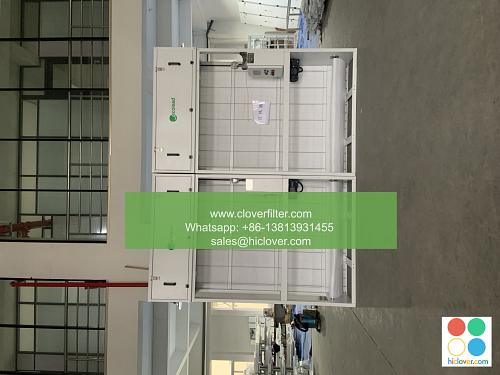Mississauga’s Medical Device Industry: The Need for Effective Air Filtration Systems

Mississauga, a city located in the Greater Toronto Area, is home to a thriving medical device industry. With a large number of companies involved in the design, development, and manufacturing of medical devices, biotechnology products, and pharmaceuticals, the city has become a hub for healthcare technology and innovation. However, with the presence of these industries comes the need for effective air filtration systems to ensure the quality and safety of products, as well as the health and well-being of employees and patients.
Applications of Air Filtration Systems in Medical Device Industry
Effective air filtration systems are crucial in various application areas within the medical device industry, including:
* Cleanroom technology: Air filtration systems are used to maintain a controlled environment in cleanrooms, where medical devices are manufactured and assembled. This helps to prevent contamination and ensures the quality of products.
* Pharmaceutical manufacturing: Air filtration systems are used to control the air quality in pharmaceutical manufacturing facilities, where active pharmaceutical ingredients (APIs) are handled and processed.
* Biotechnology research: Air filtration systems are used in biotechnology research laboratories to prevent the spread of microorganisms and contaminants, and to maintain a sterile environment for research and development.
* Medical device testing: Air filtration systems are used to control the air quality in medical device testing facilities, where devices are tested for safety and efficacy.
Benefits of Effective Air Filtration Systems
The use of effective air filtration systems in the medical device industry provides several benefits, including:
* Improved product quality: By controlling the air quality and preventing contamination, air filtration systems help to ensure the quality and safety of medical devices.
* Reduced risk of infection: Air filtration systems help to prevent the spread of microorganisms and contaminants, reducing the risk of infection and disease transmission.
* Compliance with regulatory requirements: The use of effective air filtration systems helps companies to comply with regulatory requirements, such as those set by Health Canada and the US FDA.
* Cost savings: By reducing the risk of contamination and product recalls, air filtration systems can help companies to save costs and reduce financial losses.
Key Technologies and Innovations
Some of the key technologies and innovations in air filtration systems for the medical device industry include:
* HEPA filters: High-efficiency particulate air (HEPA) filters are used to remove 99.97% of particles as small as 0.3 microns from the air.
* ULPA filters: Ultra-low penetration air (ULPA) filters are used to remove 99.999% of particles as small as 0.12 microns from the air.
* Ionization technology: Ionization technology is used to remove microorganisms and contaminants from the air.
* Nanofiltration technology: Nanofiltration technology is used to remove particles and contaminants from the air, while also providing energy efficiency and cost savings.
In conclusion, the medical device industry in Mississauga requires effective air filtration systems to ensure the quality and safety of products, as well as the health and well-being of employees and patients. By understanding the applications, benefits, and key technologies of air filtration systems, companies can make informed decisions about their use and implementation, and stay competitive in the global market for medical devices and healthcare technology.

